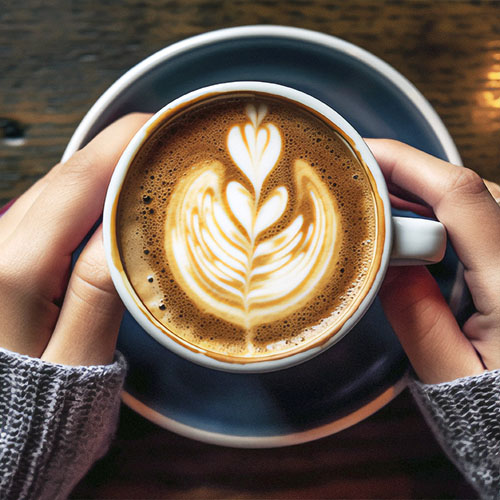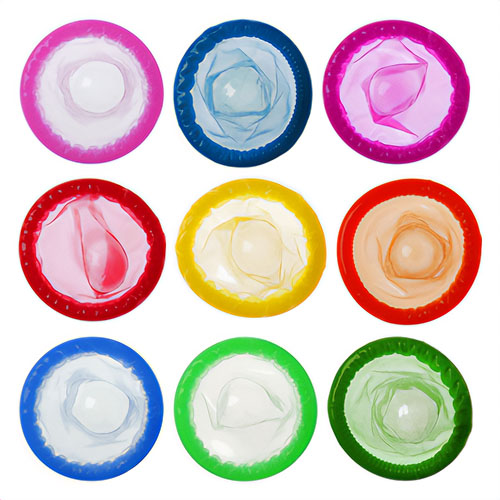Considering the season, we thought a slight throw-back into some not-quite-vintage Penthouse might still be order, so we’re combining a couple of people that very likely never met in real life. Penthouse makes strange bedfellows too, you see.
Drinking History
We’ve combined two separate articles from the Jan/Feb, 2018, issue of Penthouse Magazine for our rumination today, with a little bit of history, a little bit of legal analysis on perhaps modern origins of the practice in day-to-day lives, and then a throw to an entire world where one can examine the topic for fully and personally. Oddly, for us at least, we have no editorial opinion one way or the other, but we do like clever songs, if that tells you anything.
Drinking in the Aftermath: The Foggy History of Hangovers
By Michael Hingston
When you get right down to it, most of history is weird. That’s why writing a column like this one is a pretty plum gig. No matter how innocuous the topic might sound, you’ll inevitably come across a story that seems totally bizarre to our modern sensibility if you’re willing to dig deep enough. So with this month’s theme of hangovers, I was sure I was once again in the clear-after all, what could be an easier target than the disastrous aftereffects of too much booze? Reader, I appear before you today humbled. After spending hours poking around online, and stomping around multiple university libraries, I am here to report that hangovers are…kind of boring, historically speaking.
At first glance, this makes no sense. Getting drunk is an act that’s nearly as old as humanity itself; some researchers believe people were making alcohol even before we figured out how to grow our own crops. And as long as we’ve been drinking, we’ve been drinking too much, and then rolling around on the floor as our heads and stomachs team up to punish us for our liquid gluttony. In all that time, the course of history hasn’t been altered by a particularly nasty hangover or two?
Well, it has. We just don’t know about it. In truth, the reason the history of hangovers isn’t all that weird is because, unlike a lot of things, they aren’t some mysterious experience that science can only explain retroactively. The cause and effect is fairly obvious, and has been understood as such at least as far back as ancient Greece: Drink too much, and you’ll pay for it later. So stop talking about it so loudly, and pass me the Advil already.
Not that that dissuaded anyone from partaking in the first place, of course. The Greeks loved their wine so much that they created a party god, Dionysus, who was responsible for the all-important grape crop. They also believed that people who preferred water to alcohol weren’t just boring, but actually smelled bad. The Greeks didn’t believe in a hangover god, though (an unusual omission that would later inspire author Terry Pratchett to invent one). Instead, they knew to seek out better-quality alcohols, and, when all else failed, to sleep the rest of the day away.
No matter the part of the world, wherever alcohol appeared, hangovers weren’t far behind. And each culture grappled with them in its own way. The oldest-known Arabic cookbook, from the tenth century, suggested adding an early kind of lemonade to your alcohol to stop a hangover before it started, and if that didn’t work, downing a bowl of yogurt-y stew called kishkiyya. In the exceedingly formal society of sixteenth-century Japan, meanwhile, it was considered polite after an alcohol-heavy event to demonstrate the extent of one’s hangover-even if you didn’t actually have one. To fake it, people would send late thank-you notes to the host, written with intentionally sloppy handwriting.
But if humans have long understood the what of hangovers, sometimes a little too well-I’m partial to Kingsley Amis’s description, from Lucky Jim, of feeling like you’ve “somehow been on a cross-country run and then been expertly beat up by secret police”-they continued to struggle to understand the how. However, hangovers are starting to get their due from scientists. Recent studies have tried to break hangovers down into their constituent parts, from dehydration to nausea to a catch-all category of leftover fermentation chemicals in your stomach called “congeners.”
Still, the search for a cure remains as elusive as ever. In fact, by far the weirdest part of hangovers isn’t their past, but their future. As we speak, plenty of private companies are hard at work on developing a workaround-all that remains to be seen is which version gets to market first, and which one takes off with the public. Will it be RU-21, a Russian-made pill originally developed by the KGB? Or the tea company Tetley, which plans to roll out a special hangover tea by 2026? Or how about one of the many groups working on so-called “synthetic alcohol” which is supposed to manipulate and massage the neurotransmitters that give us the feeling of being drunk?
Personally, I’ve learned to avoid the problem by drinking two beers and then quitting. But the estimated $148 billion that hangovers cost the U.S. economy in lost productivity each year suggests that a more pressing solution might be useful.
Michael Hingston is a writer based in Edmonton, Alberta. He was our then Executive Editor’s kindergarten boyfriend. We miss her, and maybe we’d like him too.

The One-Way Street of College Drinking and Sex
By Alan M. Dershowitz
Illegal underage drinking is fueling many of the disputed sexual encounters that are roiling college campuses around the country. And university administrators don’t have the guts to confront this issue directly because it would make them unpopular with students who regard the right to get drunk and “hook up” as fundamental to the college experience.
Many if not most of the she-said-he-said controversies about whether asexual encounter was consensual involve one or both parties being drunk. In these situations, memories are blurred and the woman is almost always believed. Moreover, women aren’t charged when they have sex with a drunk man. It’s a one-way street.
Colleges that knowingly permit drinking by underage students are not only morally complicit, they may be legally complicit. They claim they can’t stop it. They are lying. It wouldn’t be easy to stop all illegal underage drinking, but it would certainly be possible to reduce the incidence of drunkenness among students.
Colleges could have a zero-tolerance policy toward underage drinking: If you’re caught, you’re automatically suspended.
They could have university police monitor local bars and card all undergrads.
They could ban alcohol in dorm rooms and actually enforce the ban.
They could require dorm supervisors to report drunken conduct. Already many dorms have video cameras that record the entry and exit of students. These videos could identify drunk students, just as such footage is utilized in contested sexual assault cases. Fraternities, sororities, and other clubs that today serve as alcohol mills should be required to stop providing booze to teenagers.
Tailgate parties could be monitored for underage drinking.
None of this would be easy or popular but it could have a dramatic effect on reducing sexual assaults. It would also reduce the number of questionable cases in which both parties are drunk and lack clear memories of what happened. I am not suggesting that colleges adopt Brigham Young University’s blanket prohibition on all premarital sex, or even its blanket prohibition on all drinking, regardless of age. But to be effective, a ban on underage drinking would have to be somewhat over-inclusive-it would have to apply to all undergraduates, even those who have reached the drinking age of 21. Otherwise it would be too easy for 21-year-old undergrads to become the providers and facilitators of underage drinking. The slightly over-inclusive ban would permit colleges to have an absolute rule against any alcohol in undergraduate dorms, at undergraduate parties, and other social events. It would require 21-year-olds to wait until they graduated before drinking on their alma mater’s campus.
But it would be worth it, if it cut down on the number of sexual assaults and complaints. It is difficult to come up with hard statistical evidence of cause and effect when it comes to alcohol and sex, because the data on drinking and sexual assaults is unreliable. But clinical evidence points to a close association between excessive drinking and disputed sexual encounters.
There is nothing ideological about drinking. Moreover, it is gender neutral — women are as much at fault as men.
An effective ban on underage drinking would also save colleges a small fortune. Today, there is an entire bureaucracy in many colleges whose primary job is to monitor the sexual behavior of students to assure that every sexual encounter meets the varying standards of consent articulated by different colleges. It would also improve the quality of the education provided by colleges, since students who come to class with hangovers are not in the best position to learn. Finally, it would reduce the number of fatalities and serious injuries associated with alcohol consumption.
So why is there no movement on campuses to allocate more resources to regulating drunkenness rather than sex? Because an entire industry and political movement has been built around punishing alleged sex offenders rather than preventing sex offenses. There is nothing ideological about drinking. Moreover, it is gender neutral — women are as much at fault as men. So there is no political or ideological benefit in focusing on the alcohol component of sexual encounters. But the cost of tolerating pervasive drunkenness on campuses-especially to women-is too high. Difficult and unpopular as it would be, it is imperative that colleges take responsibility for tolerating the crime of underage drinking.
Alan M. Dershowitz is professor emeritus at Harvard Law School and author of Trumped Up: How Criminalization of Political Differences Endangers Democracy, which we encourage as a valuable way to spend a few hours. You may also follow him @AlanDersh on social media.
Full disclosure, we never to a chance to ask Professor Dershowitz personally whether or not he appreciates The Charlie Daniels Band, but honestly, country music pretty much has a lock on all the great drinking songs. Hard to argue with the sentiments in, “Pour me another one, I’m finished with the other one, I’m drinkin’ my baby goodbye.” … Of course when in doubt, it’s hard to beat ol’ Merle. “I think I’ll just stay here and drink.” … Should you be doing Dry January, of course, well, you’re on your own in that case.























